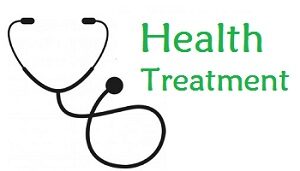Cardiologists play a crucial role in managing high blood pressure. They focus on heart health and help keep blood pressure in check. High blood pressure is a common issue today. Left untreated, it can lead to serious health problems. Cardiologists not only treat this but also guide patients on lifestyle changes. Routine care is more effective after treatment. This includes regular monitoring and adjustments. Even conditions like magnolia varicose veins can sometimes connect to heart health. Understanding these links can make a difference in overall well-being.
Understanding High Blood Pressure
High blood pressure, or hypertension, is when the force of blood against artery walls is too high. This condition increases the risk of heart disease and stroke. Cardiologists use their expertise to assess and manage these risks effectively. Regular check-ups and timely interventions can prevent complications.
How Cardiologists Help
Cardiologists use various methods to manage high blood pressure. These include:
- Diagnosing through thorough examination
- Prescribing appropriate medication
- Advising on lifestyle changes
Effective management often combines these methods. Medication alone isn’t enough. Lifestyle changes, such as diet and exercise, play a vital role too. Cardiologists provide guidance on these aspects to ensure comprehensive care.
The Importance of Lifestyle Changes
While medication helps control high blood pressure, lifestyle changes can enhance its effectiveness. Cardiologists recommend:
- Eating a balanced diet
- Exercising regularly
- Reducing salt intake
These changes can lead to significant improvements. A healthy lifestyle supports the heart and lowers blood pressure naturally.
The Role of Routine Care
Routine care is vital to manage high blood pressure effectively. It involves regular monitoring and adjustments in treatment plans. Cardiologists schedule follow-ups to ensure the treatment is working. They also check for any side effects from medication.
Understanding the Connection with Other Conditions
High blood pressure is often linked to other health conditions. For example, varicose veins might be a sign of underlying vascular issues. Cardiologists assess these connections to provide a comprehensive treatment plan. Understanding these links is crucial for overall health management.
Comparison of Treatment Approaches
| Approach | Benefits | Considerations |
| Medication | Quickly reduces blood pressure | Possible side effects |
| Lifestyle Changes | Improves overall health | Requires long-term commitment |
| Regular Monitoring | Ensures effective treatment | Needs frequent visits |
The table above shows the different approaches and their pros and cons. It highlights the importance of a balanced approach combining all methods for optimal results.
The Way Forward
Managing high blood pressure requires a team effort. Cardiologists are at the forefront, but patients play a key role too. By following advice and maintaining a healthy lifestyle, patients can effectively manage their condition. The goal is to reduce risks and lead a healthier life.
Resources like the CDC’s guide on blood pressure offer valuable information on how to manage and understand this condition.
Conclusion
Cardiologists are essential in treating high blood pressure. Their expertise and guidance make a significant impact. Through medication, lifestyle changes, and routine care, they help patients lead healthier lives. Understanding the connection between high blood pressure and other conditions is vital. It ensures comprehensive care and better health outcomes.
For more insights on heart health, the American Heart Association provides extensive resources and support. Remember, taking small steps today can lead to a healthier tomorrow.




